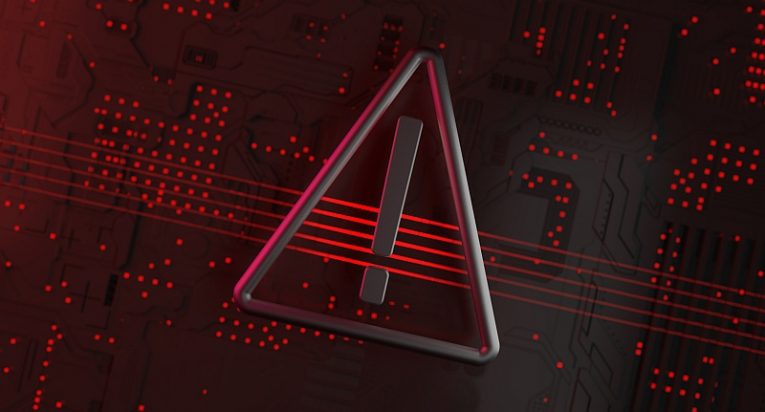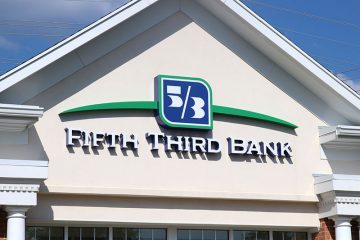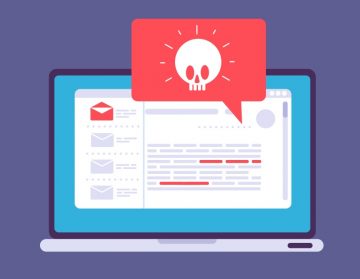Fifth Third Bank Email Scam Will Not Help You Save Money

Fifth Third Bank Email Scam: What You Need to Know
Cyber scams have taken on new levels of sophistication, and the Fifth Third Bank email scam is a prime example. This phishing attempt targets unsuspecting recipients, aiming to steal sensitive banking information by posing as a legitimate communication from Fifth Third Bank. Let's break down how this scam operates and how to protect yourself.
Table of Contents
What Is the Fifth Third Bank Email Scam?
At first glance, the email looks like an official notification from Fifth Third Bank, designed to alarm the recipient into thinking there has been unauthorized activity on their account. The email often comes with a subject line like "Important Notification Alert: Action Required" and claims that a $94.30 purchase has been made at Verizon. If you don't recognize the charge, you're urged to click a "Stop" button to halt the transaction.
The entire scenario, from the purchase alert to the bank branding, is fabricated. This email has no connection to the real Fifth Third Bank or Verizon Communications. Its sole purpose is to lead you to a fake Fifth Third Bank login page where scammers can harvest your credentials.
Here's what the message says:
Subject: Important Notification Alert: Action Required
Fifth Third Bank
Your card was used at VERIZON at the amount of $94.30.
Click to STOP if this wasn't you.
Stop
Copyright 2024 Fifth Third Bank, National Association. All Rights Reserved.
How Phishing Works in This Scam
Phishing scams like the Fifth Third Bank email scam are designed to look legitimate to unsuspecting recipients. Once a recipient clicks the "Stop" button in the email, they are redirected to a fake Fifth Third Bank website that looks almost identical to the actual one. This is where the real danger begins.
By entering your login credentials on this fake site, you're handing over sensitive banking information directly to cybercriminals. With access to your account, they can conduct fraudulent transactions, siphon funds, and gain access to other personal information linked to your bank account.
The Danger of Compromised Bank Accounts
Once scammers gain access to your account details, they have the power to carry out unauthorized purchases, wire transfers, or even change your account settings. Beyond the financial risks, your account could contain additional personal information that could be exploited for identity theft or sold on dark web marketplaces.
If you've entered your details on one of these phishing sites, it's crucial to act quickly. Change your account passwords immediately and inform your bank's customer service. In some cases, it might be necessary to freeze your accounts to prevent further damage. You may also need to report the incident to law enforcement, especially if you've lost funds.
Spotting the Signs of Phishing Scams
Phishing emails often use various tactics to gain your trust and prompt you to take immediate action. The Fifth Third Bank email scam is just one example, but similar scams have been seen under the names of major institutions. Some common phishing themes include suspicious account activity, pending transactions, password expirations, and even inheritance notices.
While phishing is typically associated with attempts to steal sensitive information, these emails are sometimes used to spread malicious software as well. The phishing email might have attachments or links to files designed to infect your device, steal data, or damage your system.
Caution: Beware of Attachments and Links
Cybercriminals often embed malicious attachments or links in phishing emails. These could be disguised as official documents or simple links to a banking website, but in reality, they trigger malware downloads. Clicking on these links or opening attached files can initiate an infection without your knowledge.
These malicious attachments can come in various formats, such as PDFs, Microsoft Office documents, or ZIP archives. While some files might download malware immediately, others require additional interaction, such as enabling macros in an Office document or clicking an embedded link. Either way, the outcome is harmful, leaving your personal data vulnerable to cybercriminals.
Protect Yourself from Phishing Scams
The best way to protect yourself from scams like the Fifth Third Bank email is to maintain a cautious approach toward any unsolicited email. If you receive an email alerting you to suspicious activity on your bank account, don't click any links in the message. Instead, directly visit your bank's website by typing in the URL yourself or by using the bank's official app. This ensures you're accessing the legitimate site and not a phishing clone.
In addition, always be wary of unexpected attachments or links in emails, even if they appear to come from familiar sources. Instead of opening these attachments, contact the sender directly to verify the email's legitimacy.
How to Respond if You Fall Victim
If you've already interacted with a phishing email like the Fifth Third Bank scam, there are steps you can take to mitigate the damage. Immediately change your bank account password and security questions, and notify your bank of the incident. They can monitor your account for suspicious activity and take additional measures if necessary, such as freezing your account.
It's also essential to review your other online accounts. Many people use the same passwords across different platforms, so if your banking credentials were compromised, other accounts might be at risk as well.
Stay Informed and Vigilant
Phishing scams continue to evolve, and the best defense is staying informed about how these attacks work. Cybercriminals rely on fear and urgency to trick people into revealing their personal information, but you can prevent this by staying vigilant. Always verify the authenticity of emails, especially when they concern your finances.
By understanding how phishing scams like the Fifth Third Bank email scam operate, you can protect yourself from becoming a victim. Remember to always approach unsolicited emails with caution, and don't hesitate to contact your bank directly if something seems suspicious. Your security is ultimately in your hands.









